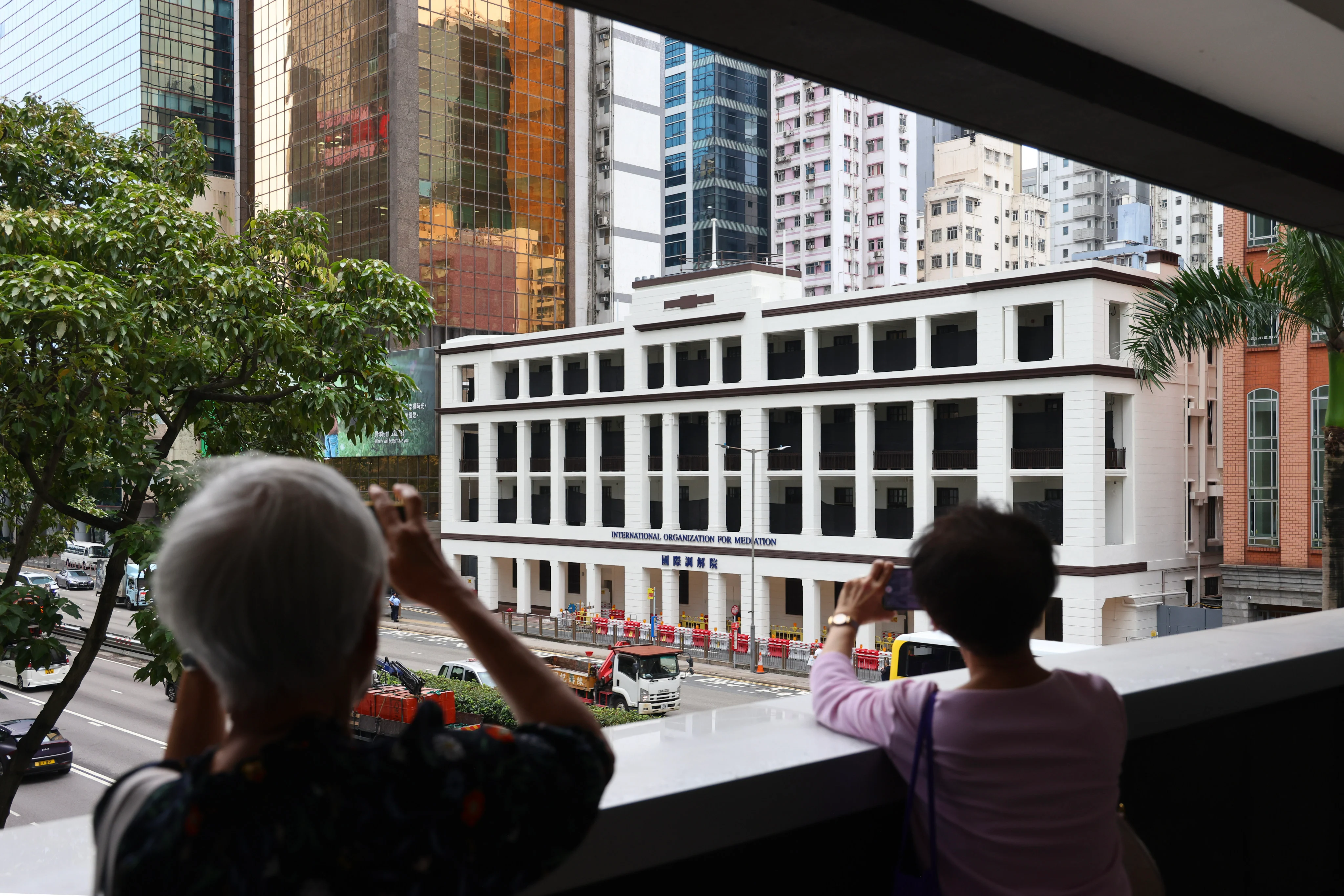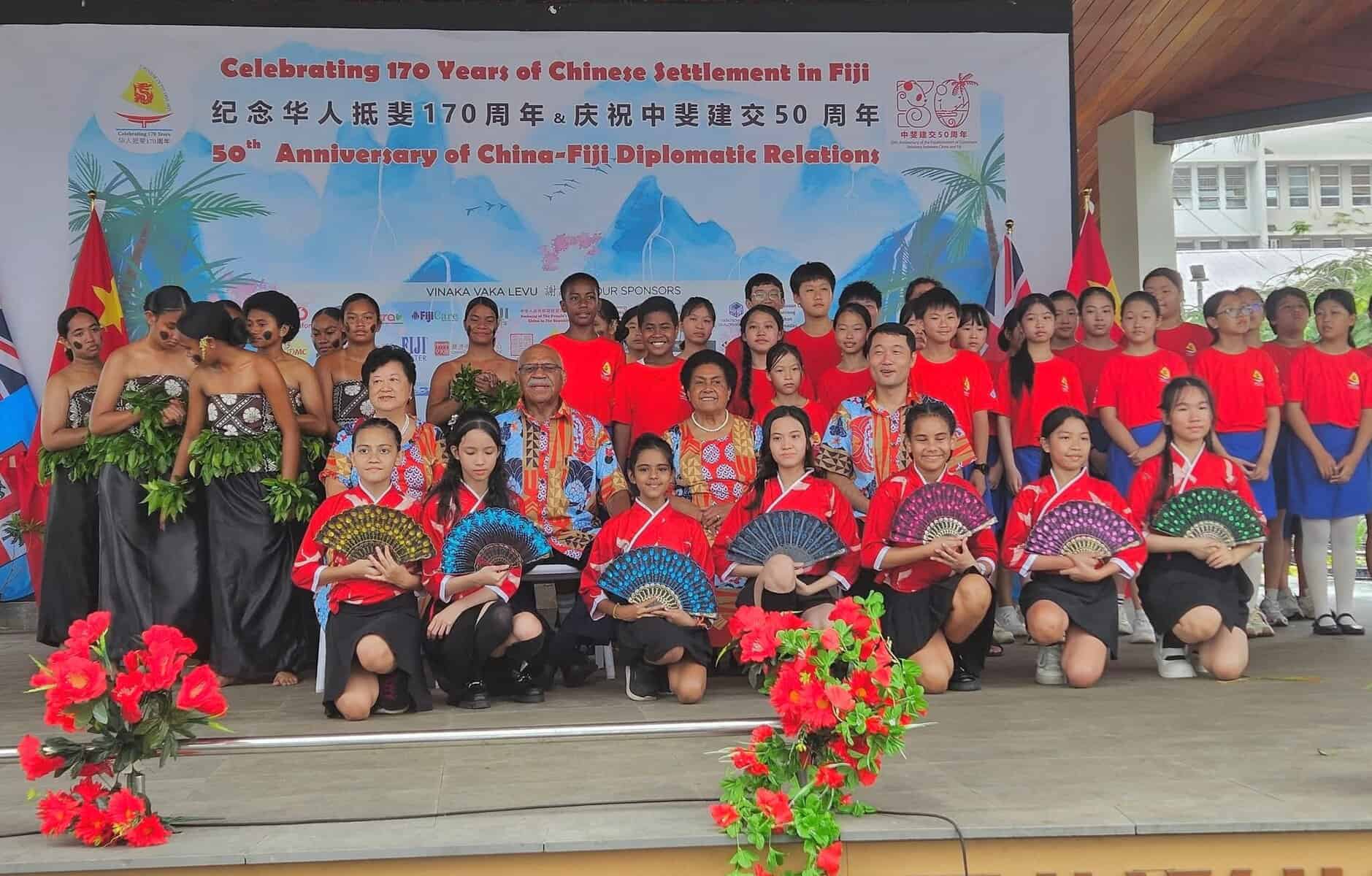Copyright scmp

The International Organisation for Mediation (IOMed) was inaugurated at its headquarters in Wan Chai on Monday, bringing the new China-led mechanism into operation to fill the void in dispute resolution. With 37 signatories, the organisation is attracting Western interest, particularly from Switzerland. The IOMed is just one among several bodies announced by or established in China this year. They include the World Artificial Intelligence Cooperation Organisation, Unesco’s International Institute for STEM Education, the UN Development Programme’s Global Centre for Sustainable Development and the Shanghai Cooperation Organisation (SCO) development bank. Collectively, these organisations signal Beijing’s faster pace of institution-building amid its drive for a more proactive role in world governance, especially through hosting UN institutions. China has presented itself as a supporter of multilateralism, as embodied in Premier Li Qiang’s recent speech to the UN General Assembly. However, it was only after the Cold War that China took on institution-building as a way to get involved. The process had three phases. The first phase began with regional security and economic issues, particularly through groupings such as the SCO. Gradually, China’s outreach increased in frequency through forums such as the Boao Forum and Brics. The second phase began in 2013 when the Belt and Road Initiative was launched. The initiative has served as a key cooperation platform for international development. But China has acted more as a founder. For example, the New Development Bank and Asian Infrastructure Investment Bank are striving to offer higher-quality products and knowledge output. In the third and current phase, the Global Governance Initiative builds on these earlier frameworks, addressing what China has framed as the “three deficiencies” of lacking representation, authority and effectiveness. Thus, each initiative meets a particular need. The IOMed offers a flexible and economical forum for resolving state-to-state, state-foreign investor and commercial conflicts outside arbitration and litigation. The New Development Bank and Asian Infrastructure Investment Bank seek to cover funding gaps in regions underserved by the International Monetary Fund and World Bank. The World Artificial Intelligence Cooperation Organisation targets the frontier where the US explicitly “reject[s] all efforts by international bodies to assert centralised control and global governance of AI”. As political scientists Michael Barnett and Martha Finnemore observe, international organisations not only manage cooperation but also “construct the social world” by setting norms and agendas. By positioning itself as a solution-provider, Beijing seeks to co-draft future rules and promote Global South priorities. By complementing rather than challenging the existing system, China is gaining recognition from the UN, developing states and prominent experts in the West. Multiple UN leaders and agency heads have visited China this year to discuss peace, development, climate change and other issues. At a September forum convened at the UN headquarters in New York, Moroccan Deputy Permanent Representative Majda Moutchou said: “China has the capacity to echo the voice of the Global South.” American economist Jeffrey Sachs went further, proposing China open a huge UN campus, calling the country “the only [one] in the world that can guide the path to zero-carbon energy, to sustainable solutions for energy and for climate”. Operationally, this wave of institution-building is unfolding with two key features. One is a venue-specific tactic designed to build on the strengths of various localities. Hong Kong was likely picked to host the IOMed for its strengths in common law and civil law, bilingual education, global connectivity and business. Moreover, the city’s Department of Justice’s “Mediate First” Pledge, a non-legally binding statement to prioritise mediation before resorting to other means of resolving disputes, goes back 16 years. With the help of academic institutions and think tanks, Hong Kong can form a world-class nexus for research and policy, bolstering its bid to host or initiate more organisations, spanning culture, charity, sustainability and AI. The other feature of China’s institution-building is the involvement of multiple cities at multiple levels. By 2023, Beijing housed the offices of 113 international organisations, representing a 33 per cent increase from 2019. However, even smaller cities are playing a role. For example, Deqing county, Zhejiang province hosts the UN Global Geospatial Knowledge and Innovation Centre, a fully-fledged technical centre. Altogether, this approach helps China mitigate risks, overcome limits on resources and vision and more efficiently supply public goods. China’s appeal as a host stems from its domestic attributes and substantive external involvement in world affairs. A boom in area studies has led to the creation of hundreds of research centres with a worldwide scope. There are well over 1,000 think tanks active in China, focusing on public affairs, development and emerging technology. Going forward, the next test will be how China can leverage these platforms to attract more professionals from abroad and advance its global perspective and knowledge ecosystem. Hong Kong can help by acting as a “super value-adder” for institutions on the mainland and a global hub for high-calibre talent, concentrating expertise and extending influence. IOMed Secretary General Teresa Cheng Yeuk-wah said that the institution will serve as a public good and vital pillar – offering the international community a “powerful choice” to practise autonomy and mutual respect. The IOMed and others like it are likely to face challenges, whether in governance or operation. But in learning by doing, they will become an eloquent testimony to their own capacity. Slowly but surely, they will enhance their host country’s commitment to multilateralism, solidify the Global South’s role in shaping rules and spurring sustainable innovation in global governance.



